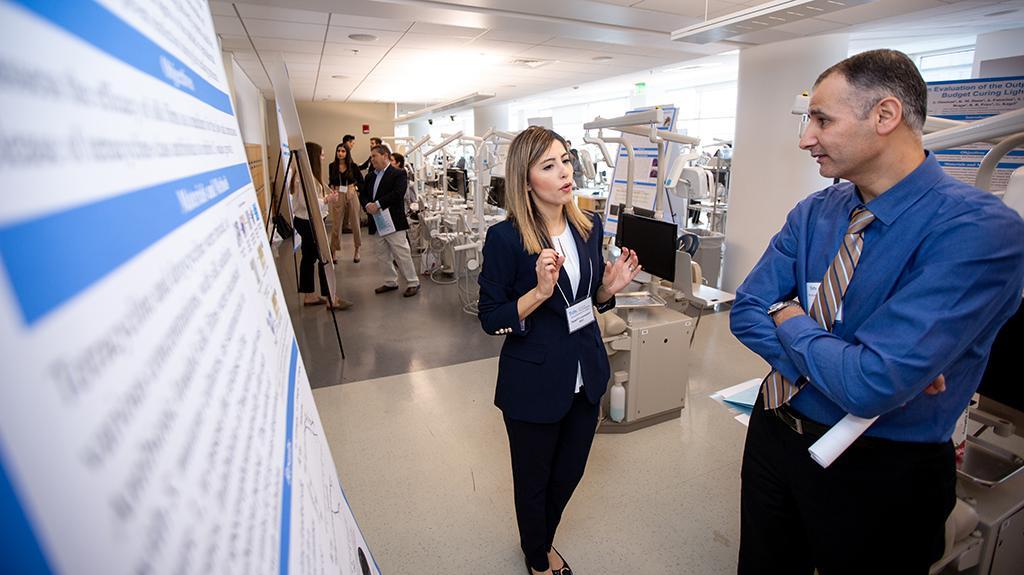Doctor of Science in Dental Research/Dentistry

Application Procedures
There are two routes of entry to the TUSDM Doctor of Science program:
- Candidates who are applying to the Doctor of Science program only
- Candidates who apply to a joint Doctor of Science/Advanced Education program in Orthodontics, Periodontics, Prosthodontics, Endodontics or Pediatric Dentistry
Applicants must hold an approved dental degree (DDS, DMD, or BDS), and may or may not be interested in dental specialization. Evidence of excellent scholarship, research potential, and a career interest in academic dentistry must be demonstrated.
Doctor of Science Candidate Only
Candidates may pursue the Doctorate of Science (DSc) degree without participating in an Advanced Education specialty certificate program. Candidates must submit a complete application to the TUSDM Office of Admissions. A complete application includes a brief essay (300 to 500 words) describing the candidate’s research experience, reasons for wanting to pursue the DSc in Dental Research, and research topic ideas. TOEFL score, if applicable, are required. DSc-only candidates must apply by March 1 in order to matriculate on July 1 of that same year.
Joint Program Candidates
Candidates interested in jointly pursuing a Doctorate of Science (DSc) degree and participating in an Advanced Education specialty certificate program must indicate this in their application and letter of intent. A complete application includes a brief essay (300 to 500 words) describing the candidate’s research experience, reasons for wanting to pursue the DSc in Dental Research, and research topic ideas. Note: Candidates must submit a separate application to their preferred Advanced Education specialty program. Deadlines for joint programs vary depending on the specialty.
Applications are reviewed on a case-by-case basis. Depending on admission decisions, candidates may be admitted to the DSc-only or specialty-only program.
Tuition
Students enrolled in the DSc-only program are charged at the customary post-graduate tuition rate for three years. Students enrolled in a joint DSc/Advanced Education specialty certificate program are charged at the customary post-graduate tuition rate the first two years, then they are also charged an additional 25% of the customary post-graduate tuition rate for each semester they are concurrently enrolled in both programs.
The proposed DSc curriculum and program delivery are designed to include two tracks.
Track 1: DSc only – three years to completion
Track 2: DSc + dental specialty – five years to completion
- Year 1 and 2 – Courses and development of research proposal and execution of research project
- Year 3, 4, and 5 – Students will begin their specialty programs and department-specific courses, e.g., periodontology, etc.
The first two years are identical for both tracks. Students will complete core coursework, an oral qualifying exam, a research proposal, and applicable electives guided by their research interests and thesis topic. Students will also perform independent research and study, presenting their culminating work in a thesis defense.